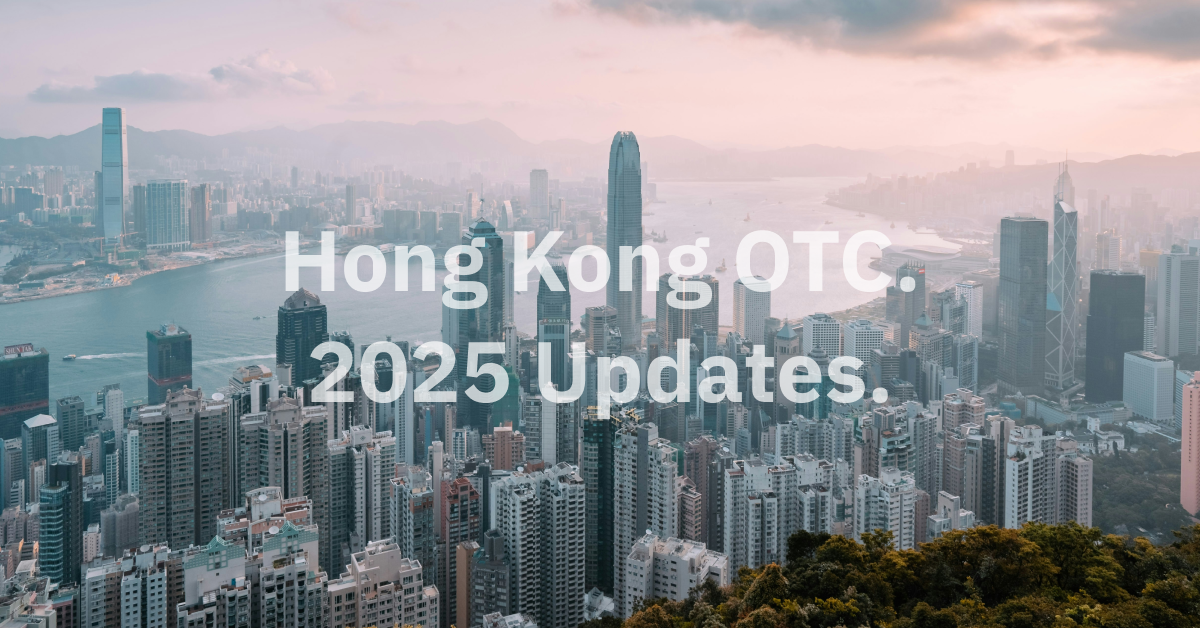
Hong Kong’s OTC Derivatives Rules are changing: Here's What You Need to Know for 2025
In 2025, two of the world’s leading financial hubs—Hong Kong and Canada—will introduce significant updates to their over-the-counter (OTC) derivatives regulations. This is part of a broader push to align with global standards set by the Financial Stability Board (FSB) and other international regulatory bodies. The changes are part of global efforts to improve transparency, reduce systemic risks, and align with international standards. If you're involved in the OTC derivatives market or work in compliance, fund operations or risk, it’s crucial to understand how these revisions may impact your operations.
Let’s dive into the key changes that will be rolled out in Hong Kong this year, and what firms need to do to stay compliant.
Hong Kong’s OTC Derivatives Rule Rewrite
In 2025, Hong Kong will further strengthen its oversight of OTC derivatives with a comprehensive regulatory overhaul. Here are some of the critical changes:
Key Highlights:
- Mandatory Reporting of OTC Derivatives Transactions
Starting from September 29, 2025, all OTC derivatives transactions in Hong Kong will need to be reported to the Hong Kong Trade Repository (HKTR). There will be no minimum threshold for reporting—this means that all market participants, regardless of their size, will need to report their OTC derivative trades. This move is in line with the global goal of improving market transparency and ensuring that regulators have real-time access to critical data. - New Reporting Requirement
The new rules will require market participants to report a broad range of data, including Unique Transaction Identifiers (UTIs) and other Critical Data Elements (CDEs). This means that firms will need to update their systems to accommodate these requirements, ensuring they comply with global reporting standards.
-
Enhanced Risk Mitigation Practices
The updated rules will also introduce requirements aimed at improving the risk management framework for OTC derivatives transactions. This includes tighter margin and collateral management standards. Firms should adopt robust updated risk management practices to mitigate any potential risks arising from the trading of these instruments.
What Firms Need to Do:
- Review Reporting Systems: Market participants must ensure that their reporting infrastructure is capable of reporting all necessary data elements to the HKTR.
- Enhance Risk Management: Firms will need to adapt to new risk mitigation practices, especially for collateral management and margining.
- Stay Updated on Compliance: Ongoing compliance efforts will be necessary to stay in line with any further updates and clarifications from the Hong Kong Securities and Futures Commission (SFC).
- Ensure Reconciliation and Quality of Reported Data: Receive data back from HKTR and reconcile against original book of records, as well as ensuring data stored in the trade repository aligns to the rule set shared by the regulator.
What These Changes Mean for Market Participants
The OTC derivatives market is constantly evolving, and the changes being introduced by Hong Kong are reflective of a global trend towards greater transparency, risk reduction, and regulatory consistency. Here’s what market participants should focus on:
- Increased Compliance Costs: With stricter reporting requirements and new data elements, firms will likely face higher compliance costs. These could include upgrading internal systems, training staff, and ensuring that reporting processes are fully aligned with new regulations.
- Operational Adjustments: Many firms will need to adjust their operational processes to handle the increased complexity in data reporting and risk management. This may involve investing in technology and streamlining internal processes.
- Greater Transparency: For the broader market, these changes will enhance transparency, providing regulators with more visibility into OTC derivatives transactions. This could lead to a more stable and less volatile market in the long term.
Conclusion
The upcoming changes to OTC derivatives rules in Hong Kong represent a significant shift in regulatory landscapes, aimed at improving market transparency, risk management, and systemic stability. Firms engaged in the OTC derivatives market will need to ensure they are fully prepared to meet new reporting and compliance requirements. By staying ahead of the curve, market participants can mitigate potential risks and capitalise on the benefits of a more transparent and resilient derivatives market.
If your firm is involved in OTC derivatives trading, now is the time to start reviewing your compliance processes and technology infrastructure. As 2025 approaches, being proactive about these regulatory updates will be key to staying compliant and competitive in an increasingly regulated global market.
You can find out more about our HKMA TR Oversight Solution here. Want to see our solution in action? Click below and book in a demo slot:



